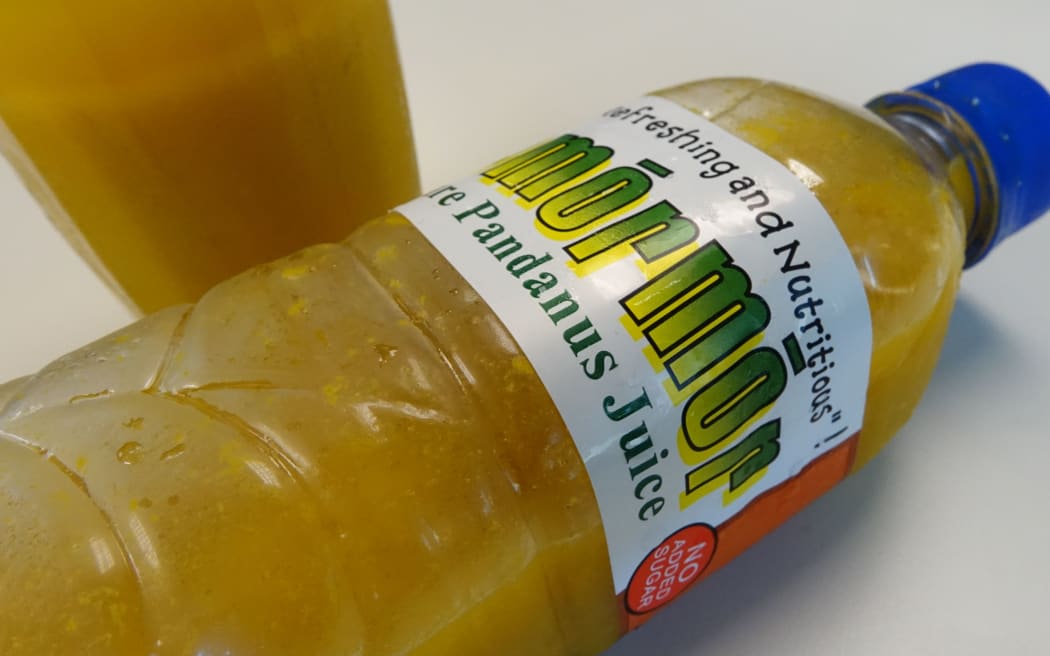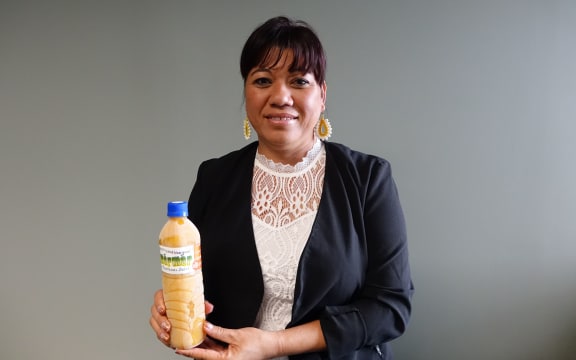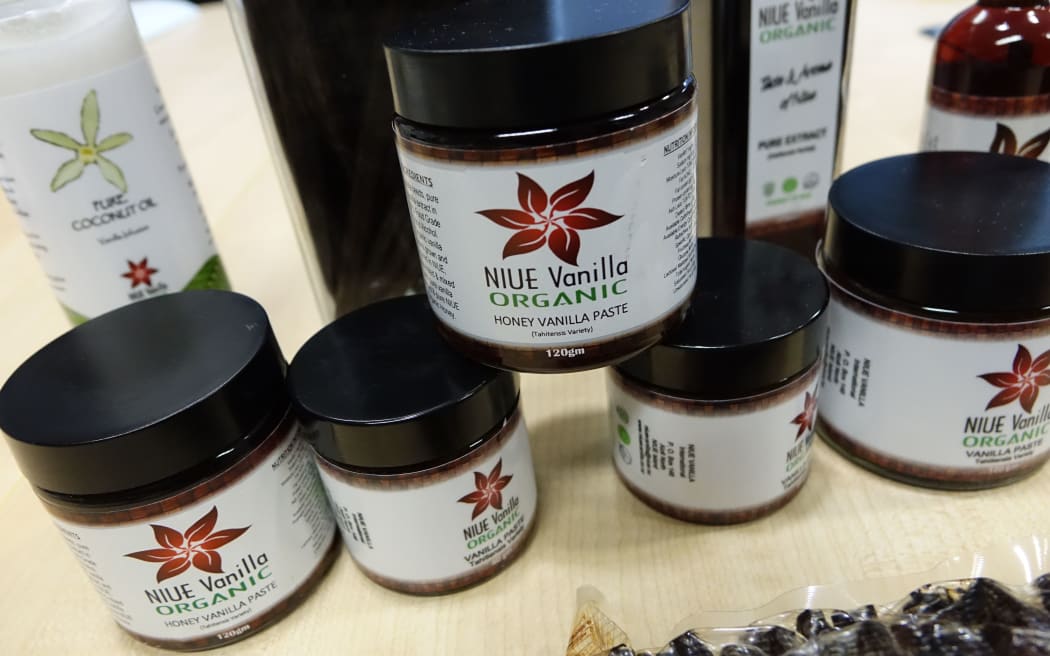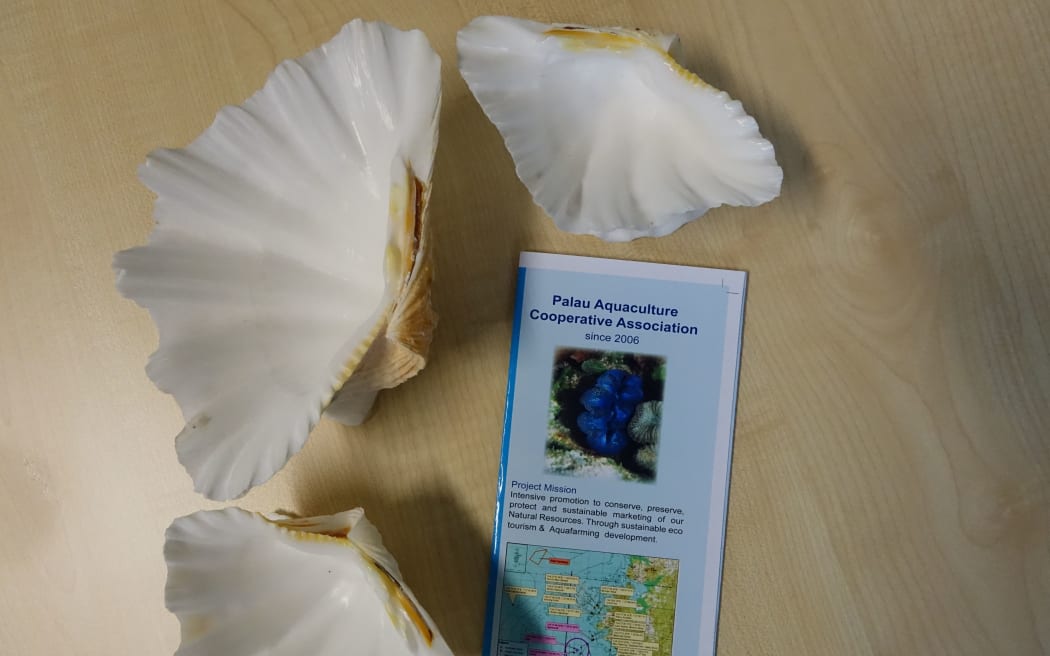Food and beverage exporters from the Pacific say one of the greatest challenges they face is having to constantly adapt to and overcome the effects of climate change.

Pandanus Juice from the Marshall Islands Photo: RNZI
Exporters from Kiribati, the Marshall Islands, Niue, Tuvalu, the Cook Islands and Palau are in New Zealand this week to learn more about breaking their products into a larger export market.

Iva Reimers-Roberto, from Robert Reimers Enterprises, holding a bottle of Pandanus juice. Photo: RNZI
Iva Reimers-Roberto, from Robert Reimers Enterprises in the Marshall Islands, says they are looking to export their organic, and 100% pure Pandanus juice to New Zealand, Australia and Japan.
She says challenges include freight costs and gaining international certification, but when it comes to planting the Pandanus tree, climate change is especially a problem.
"That is one of the major hurdles. Basically, it's erosion of our land, limited land area. And also when you take into consideration the out-migration of our people in the outer-islands, so obviously there's going to be no one else to plant these products but we would like to involve everyone in the outer islands."

Niue Vanilla products Photo: RNZI
A company in Niue, Niue Vanilla International, is looking to officially launch their organic vanilla bean products in the New Zealand market.
Its managing director, Stanley Kalauni, says the products include fresh cured vanilla beans and vanilla paste, which are all hand made on Niue.

The Managing Director of Niue Vanilla International, Stanley Kalauni Photo: RNZI
He says working with vanilla beans is highly labour intensive and they want to make sure they have the capacity to supply the New Zealand market.
Mr Kalauni says climate change can also prove a big challenge.
"The weather have changed, weather patterns back home. For vanilla to thrive, you need a lot of rain, at the right place where they are actually grown or farmed. At the moment, over the last couple of months, or three months, we have a really, really dry spell, so the vines are actually suffering at the moment. We hope to get some serious rain in the next couple of weeks or so."
He says the company sources from over 50 farmers on Niue, as well as its own farm.

Clam shells from Palau Photo: RNZI
Another company in New Zealand for the mission, the Palau Aquaculture Cooperative Association, is looking to export giant clams, and has adopted innovative farming methods to ensure climate change is not an obstacle.
Its executive director, Bernice Ngirkelau, says they are looking at setting up a processing plant so they can begin to export giant clam meat.
She says they have to come up with new farming methods, like using a screen to cover the clam farms, to adapt to the challenge of climate change.
"We need the screen to protect the clams from overheating. We came up with another cage design that we can use in a deeper part of the ocean. So we usually place the farm in the shallow area, but since the weather is getting warmer and warmer, we now have moved the clams farms to a little deeper area of the ocean."

The Executive Director of Palau Aquatics, Bernice Ngirkelau Photo: RNZI



